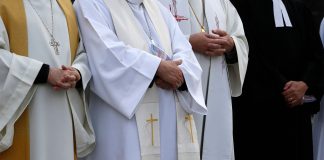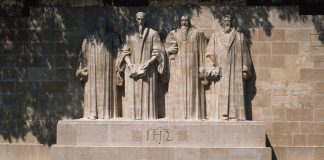Ștefăniță Poenariu
The One Who emptied Himself
Some moments in life fade quickly, like ephemeral portraits in the memory's archive. Others, though we have never witnessed them, haunt us and force us to reconsider our perception of life, time, and our shadow self.
Simeon and Anna: From waiting to fulfilment
Some expectations dissolve into routine or turn into despair, while others invigorate life. The former are measured in deeds and desires, while the latter are measured in faithfulness and beliefs.
Overcoming trauma and the role of forgiveness in family life
Studies indicate that most people experience at least one traumatic event in their lifetime, whether physical or psychological.
What we can learn from our children
The relationship between a parent and their child is one of the most significant in their lives, with its primary role being education.
How can I know God as He is, rather than as I imagine Him to be?
To know God is an aspiration inherent in the rational being who recognises His existence.
The fatherly Sovereign
In a society with a pragmatic mindset, any kind of belief is subject only to practical judgments. Effectiveness, usefulness, and utility are the basic criteria by which actions, deeds or beliefs are valued.
The splendour of existence
"From one man he made all the nations, that they should inhabit the whole earth; and he marked out their appointed times in history and the boundaries of their lands. God did this so that they would seek him and perhaps reach out for him and find him, though he is not far from any one of us" (Acts 17:26-27).
Christianity, between constraint and libertinism
To be a good Christian, they say, you must not swear, steal, lie, cheat or speak ill of anyone.
The Ecumenism Files IV: Ecumenism in recent times
To what extent is ecumenism included in God's concerns? Does God's agenda include this objective?
The Ecumenism Files III: From the Reformation to Postmodernity
The dialectical spirit of ecumenism gives rise, among other things, to a question whose full answer is still awaited: How is it that the critical spirit and rationalism of Enlightenment origin, combined with making the Bible available to ordinary people, has led to so many schisms?
The Ecumenism Files Part II: Ecclesial unity and the terror of medieval (religious) history
The troubled centuries that followed the Great Schism of 1054 and the corresponding climate inside the Christian church gradually gave way to profound shifts in the thinking and spirituality of Europeans.
The Ecumenism Files Part I: From the Apostolic Church to the Great Schism
In the face of the hundreds of Christian confessions that exist today, the ecumenical efforts of the last decades have invariably raised some complementary and equally legitimate questions: Is Jesus' desire "that all of them may be one" (John 17:21) possible?
Our parents’ need for meaning
No matter how much we avoid it, the day will come when our parents will not be able to get by without us, just as we would not have been able to grow up without them.
John Calvin
In The Legacy of John Calvin, David W. Hall divides leaders into two categories. Some predict the future, and others change it. Calvin, Hall said, is in the second category.
God, armed violence and genocide
One of today's dilemmas disputes, dialectically, the complex reality of the Bible and the secular way of looking at the "terror of history": Is God a source of morality superior to humanism, or not?


























